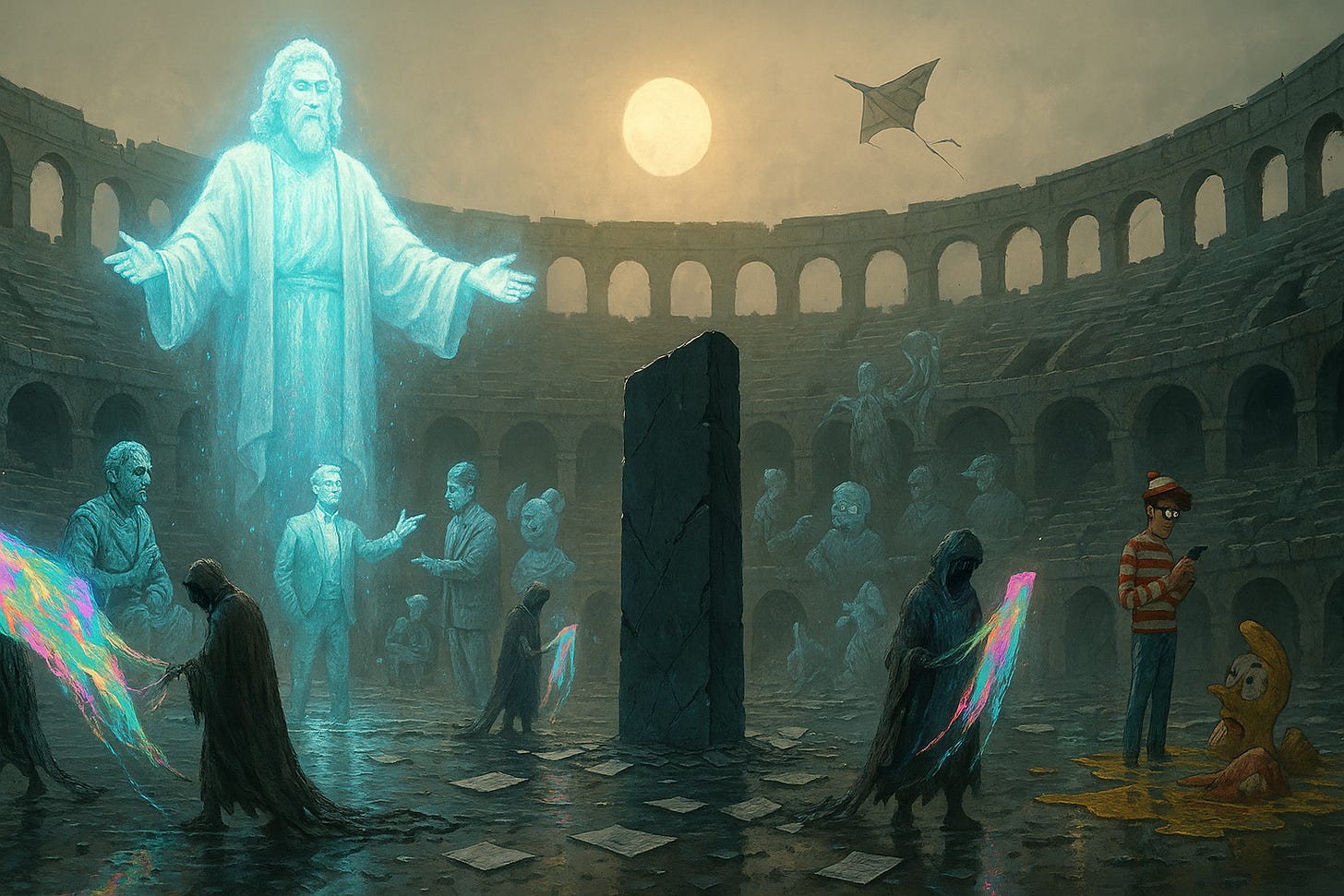Meta Has Negative Brand Value
or when your name does more harm than good
can brands have negative value? not when it comes to attention. the floor is zero. everyone loves a spectacle. but trust? belief? action? absolutely. brands can sink way below zero. you can be famous and still repellant. you can have billions in "brand equity" and still hurt your odds of getting anyone to try what you built.
picture this: Kanye launches an llm. he's got the capital, the talent, the backing. the model’s actually good. maybe even best in class for a certain kind of user: young, ambitious, sick of therapy bots that just nod along. his model pushes you. it’s bold, intense, unapologetic. he calls it Hitly. it's designed to turn users into ubermen.
would people pay attention? of course. it’d flood every feed.
but would they actually use it? probably not. the Kanye brand is radioactive. it signals chaos, risk, cancellation. same exact product, launched by a fresh unknown founder with a clean name, might thrive. because no reputation often beats a bad one.
same thing happened with the Metaverse. the tech didn’t fail. Facebook touched it. i didn’t want to explore it. i wanted to laugh at it. that’s what happens when a brand inspires instinctive distrust, no matter how many billions analysts say it’s worth.
Trust Issues
trust doesn’t vanish in a moment. it erodes. and once it’s gone, everything turns into an uphill battle. the worst part? it doesn’t even have to be your fault. people build patterns. one bad experience with a marketing agency and suddenly every agency feels shady. even the good ones. it’s not fair, but it’s real. prejudice just rebrands as caution.
this dynamic creates short-term wins. shady tactics work. they convert. but the bill always comes due. people stop giving your new ideas a chance. not because the ideas are bad, but because the audience already made up its mind.
Google and Meta are perfect examples. they should have a flawless hit rate by now. they’ve got the smartest people, the most data, infinite resources. and still, their launches flop. Metaverse. Stadia. Glass. Threads. the tech isn’t the problem. it’s trust. no one believes them in those categories.
same thing happened to me with Amazon. they nailed logistics. i trust them with packages, shipping, returns. but when they moved into games or original content, i was instantly skeptical. not because they can’t do it, but because that kind of trust doesn’t transfer.
you can’t be good at everything. and even if you are, people won’t always believe it.
Destroying Brands
let’s say you’re hired to sabotage a brand. not with a bang, but with a slow, steady erosion of trust. not scandal-level damage, just a quiet decay. reputational corrosion.
your first instinct might be to tank the product’s quality. but that’s surprisingly fixable. people are forgiving when they sense effort. fix the bugs, show some hustle, and often they’ll come back.
but taste? taste lingers. you see it in film all the time. disney’s technical execution is flawless. gorgeous visuals. seamless production. but the stories? formulaic. cautious. lifeless. the taste is off, and that hollowness erodes emotional trust. i no longer believe they’ll make something that moves me.
ironically, working at disney might hurt your credibility, but leaving it can boost it. if someone escapes and starts making bold, strange work, the public assumes they were too creative for the machine. it becomes a redemption arc.
so if your goal is to maximize negative brand value, here’s the playbook:
prioritize safe, sanitized content over anything original
flood the market with ai-generated sludge, void of soul
design the experience so users feel they are the product
and do it all with a confident smile that says “we know better than you”
not loud failure. quiet contempt. that’s what really kills trust.
A Famous Brand Can be a Liability
when trust breaks, nothing works. it’s not just the product. it’s how people feel about the system behind it. tesla is the clearest recent example. the cars are still cutting edge, arguably the most advanced on the road. but for a lot of left-leaning consumers, the brand feels off now. because of elon. because of politics. because the status signal flipped. what once said “future” now says “problematic.” and that emotional reversal hits hard.
tesla might go bankrupt. not because the product failed, but because the trust collapsed.
this is why negative brand value has almost nothing to do with performance or price. it’s about alignment. about breaking invisible expectations people didn’t even know they had until you violated them. and those expectations don’t have to be logical. you can’t reason your way back into trust.
when a brand starts to hurt more than help, the move is clear. restructure. keep building cool things, but leave your name off them.
facebook should’ve never launched llama under the meta brand. the logo alone makes people hesitate. now look at microsoft. they own a huge chunk of openai, but you wouldn’t know it. they didn’t slap their name on everything. no one connects chatgpt to teams. and that distance might be exactly why it works.
the brand is the wrapper. sometimes the smartest move is to leave it off.


